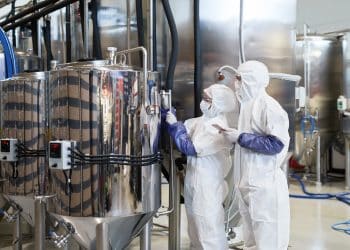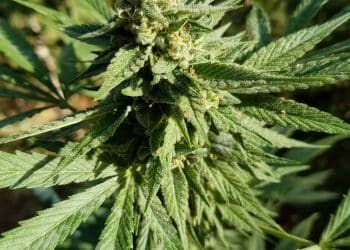Plant extracts have become a staple ingredient of skin care products as consumers seek to avoid synthetic ingredients. Natural plant ingredients have been used on skin for centuries and are thought to have many benefits. When sourced responsibly, plant extracts offer great natural benefits for skin and the environment since they are biodegradable and offer the same benefits as synthetic imitations.
Skin protects us from the external environment, helps us regulate temperature and water balance, protects us from sunlight, and keeps out pathogens and chemicals. [1] When skin function is impaired, it can influence our bodies, so it is important to care for it. Of course, there are also cosmetic motivations for skin care. Plant extracts in cosmetics help protect and repair skin through properties like antioxidant activity, anti-inflammatory activity, and antimicrobial activity. Each plant’s extract has unique traits that come from their distinctive molecules like vitamins, flavonoids, terpenes, and proteins.
Antioxidant Activity
Oxidative stress is cellular damage caused by things like sun exposure. Free radicals of reactive oxygen species (ROS) and lipid peroxides are created by oxidative stress. Antioxidants are agents that stop these molecules from damaging cells. A major source of antioxidants are the phenolic compounds found in plant extracts (e.g., flavonoids). Luteolin 7-O-glucoside, a flavonoid from olive leaf, is an example of an antioxidant with strong free radical scavenging activity. Extract of wine grape seed is used in hundreds of cosmetics due to an abundance of antioxidants.
Tyrosinase Inhibition Effect
An enzyme called tyrosinase is key to regulating melanin production. Melanin is the molecule that gives skin its pigmentation and can help defend against sun damage. If the tyrosinase enzyme is overactive it can lead to overproduction of melanin and skin disorders. Plant extracts like kojic acid, arbutin, and different kinds of vegetal/herb extracts can inhibit tyrosinase. Flavonoids like those found in aloesin and licorice extracts are frequently used in skin-lightening creams to help correct hyper-pigmentation.
Antimicrobial Activity
Antimicrobial plant compounds defend against bacteria and fungi that can cause problems like acne and rashes. Plants naturally produce antimicrobial agents to defend themselves from pathogens, and plant extracts bring those benefits to skin care products. Phenolic compounds affect the cell permeability of microorganisms and may penetrate bacteria. Antimicrobial plant extracts can benefit skin and also benefit products by improving shelf life. Cannabis has demonstrated activity against microbes including Escherichia coli, Enterobacter aerogenes, and Staphylococcus aureus. Extracted leaves from the Brazilian fruit tree pequi serve as another example of strong anti-microbial properties. [1]
References
- Ribeiro A, Estanqueiro M, Oliveira M, Sousa Lobo J. Main benefits and applicability of plant extracts in skin care products. Cosmetics. 2015;2(2):48-65. doi:10.3390/cosmetics2020048. [Impact Factor: 2.928; Times Cited: 98 (Semantic Scholar) ]
Image: Marina Pershina on Pixabay











